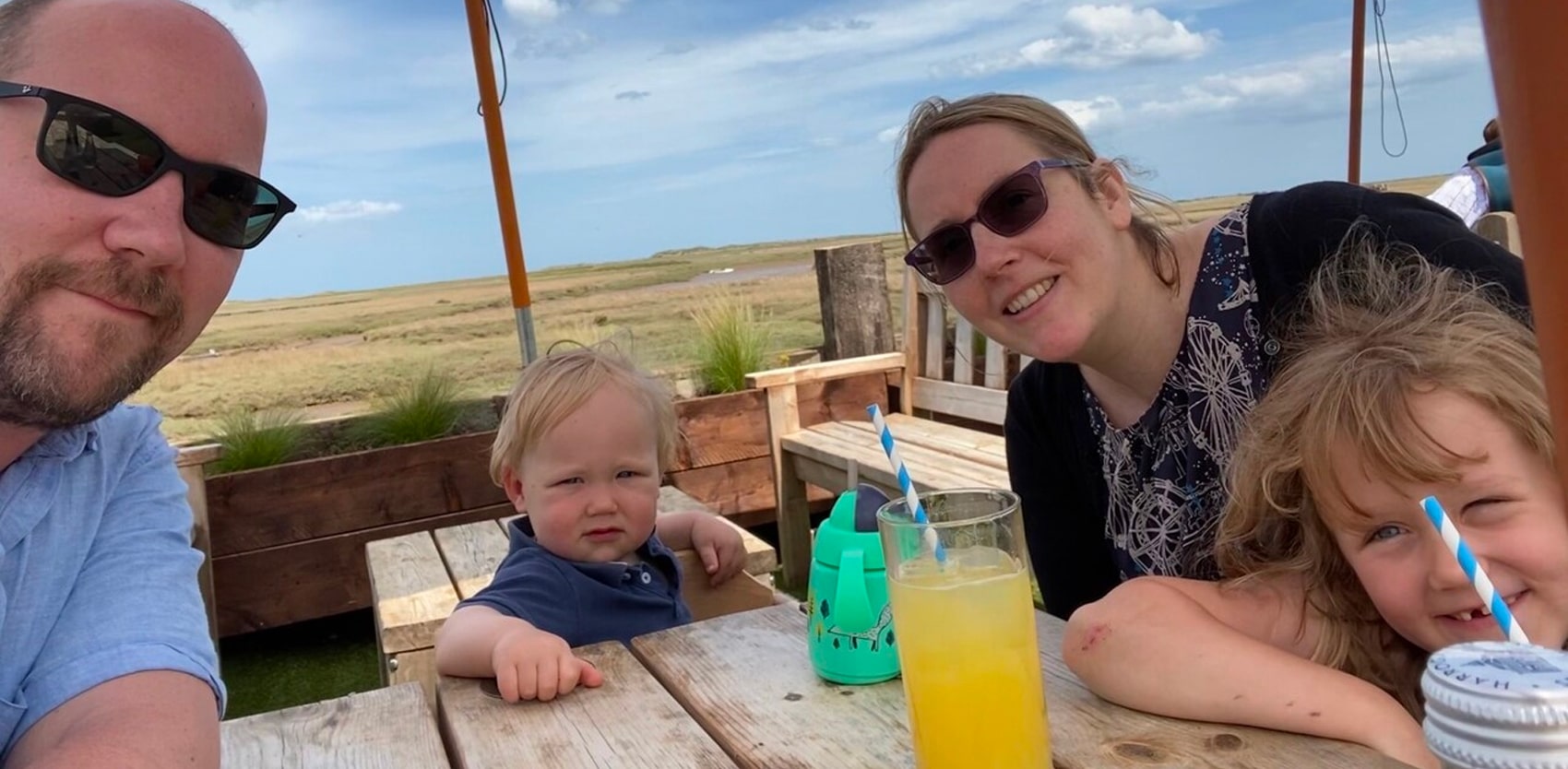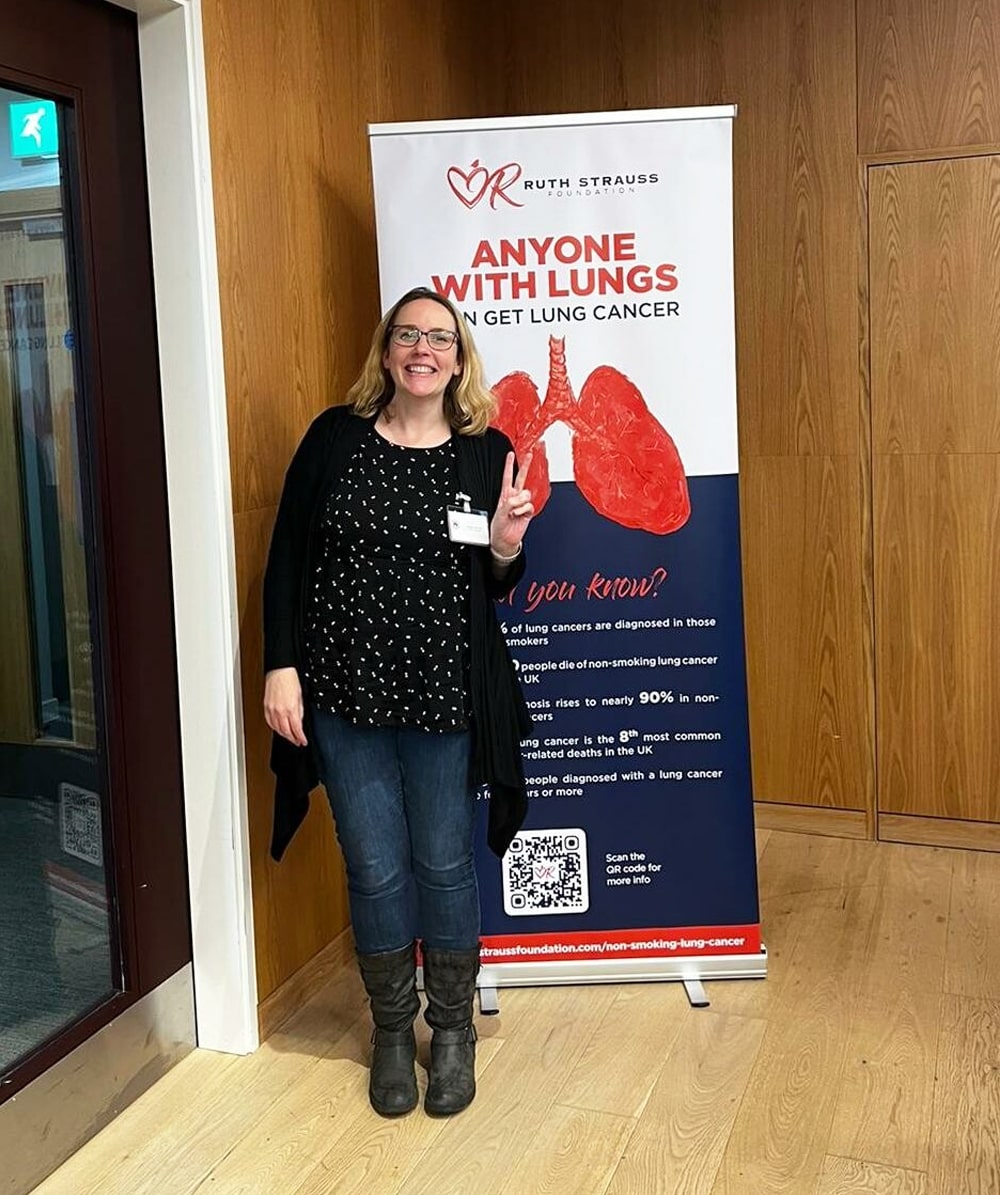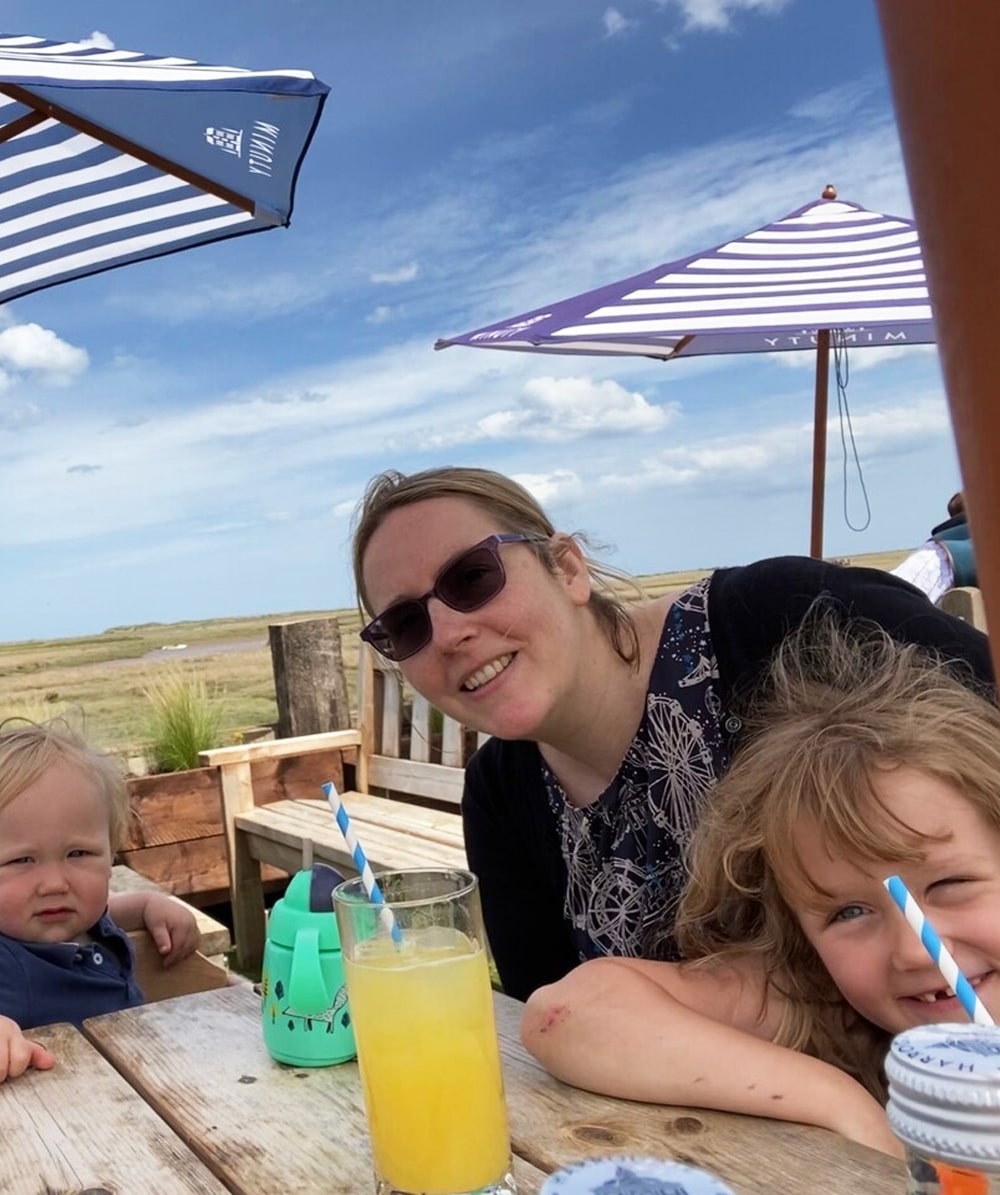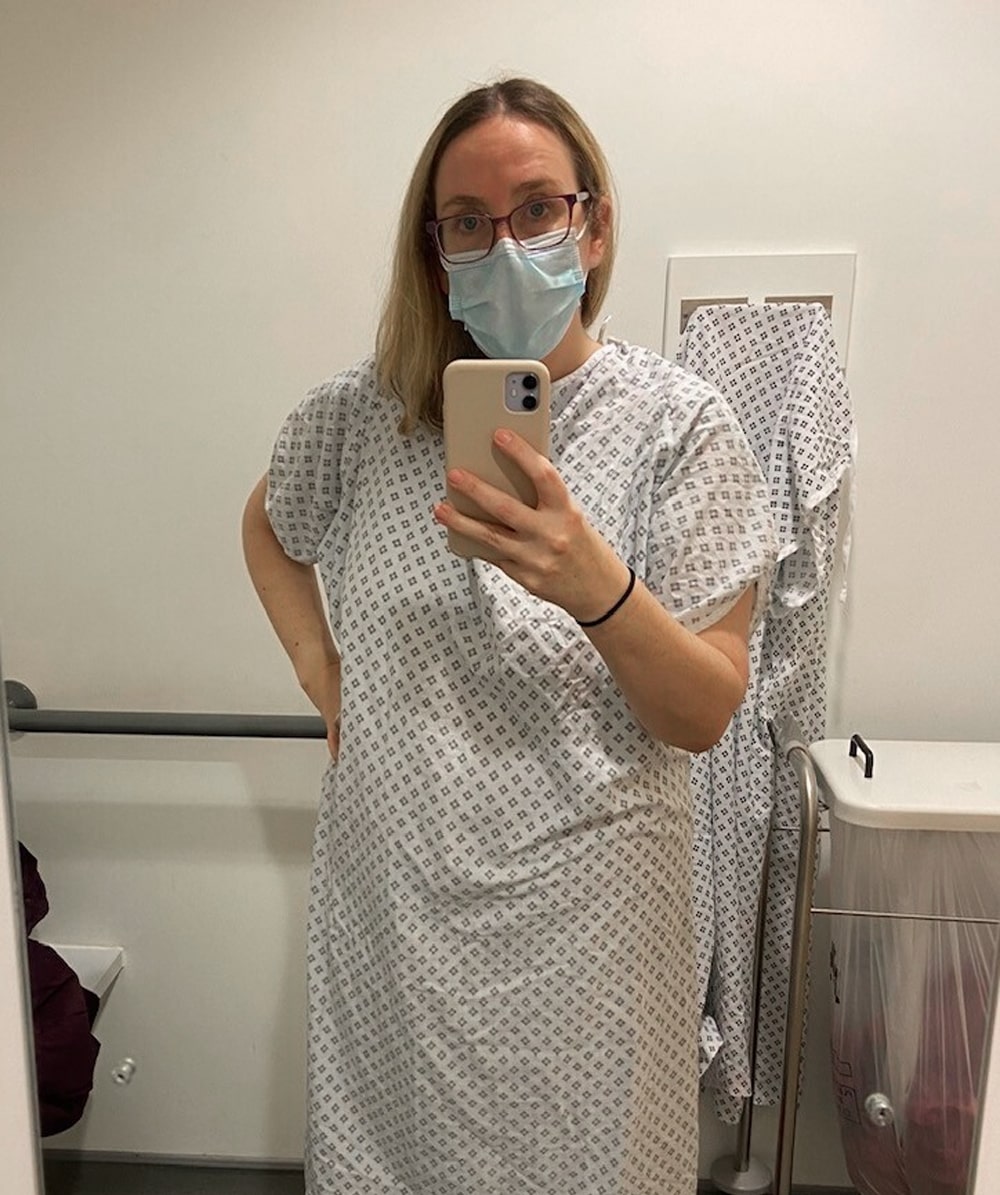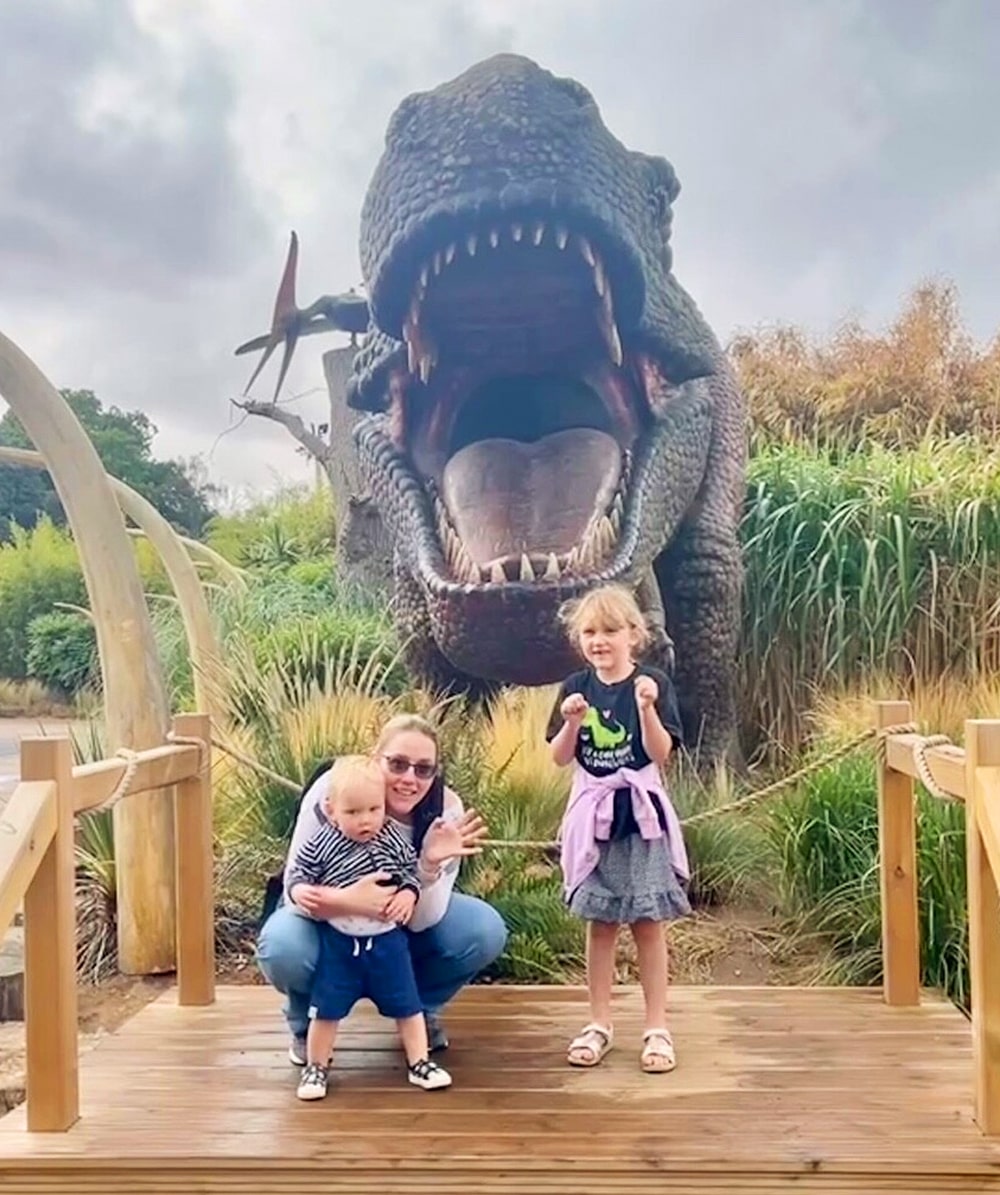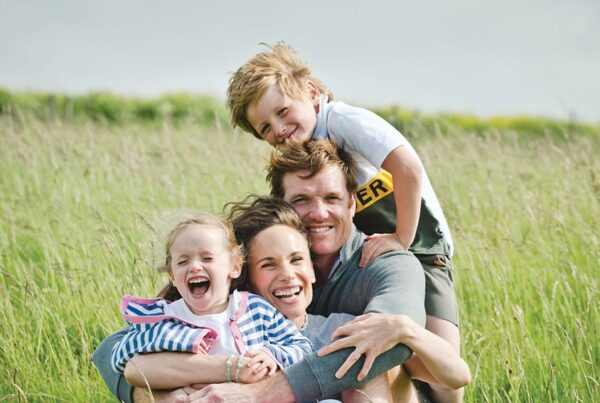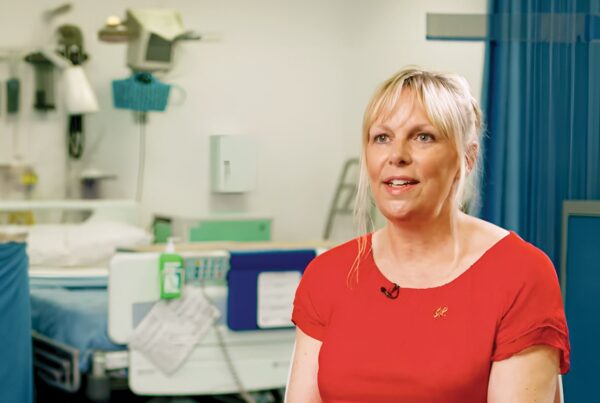I was absolutely shocked.
Gini’s Personal Story
I’m Gini, 41, and a mother of 2 small children (aged 21 months and 6 years), who I adore. I’m a Senior Lecturer in Psychology and I also have Stage 4 non-smoking lung cancer. As someone who has never smoked, and who is otherwise relatively healthy, I genuinely couldn’t believe it. It felt like my world suddenly collapsed and made no sense.
I didn’t have any of the symptoms you would traditionally associate with lung cancer. I didn’t have breathlessness, coughing, or lung symptoms. The only symptom I had was shoulder pain that got worse and wouldn’t go away.
Initially, they thought the pain was due to poor breastfeeding posture, given that I had only recently had my son. It was during Covid and all of my medical appointments were done over the phone. Nobody could really see how bad it actually was.
I didn’t see anybody face-to-face for 9 months, by which time I was so fed up, I paid to go privately so I could physically see someone. The shoulder specialist knew something wasn’t right, and sent me for an MRI. This came back showing a tumour in my upper right lung, and another one in my scapular.
It was the last thing i expected to happen to me on maternity leave!
I hadn’t really ever heard of non-smoking lung cancers before my diagnosis. I knew logically that anybody could get cancer of anything, but I’d never really thought about it before. I always assumed my risk factors were really low. I always linked lung cancer to smoking. I certainly never thought it was something that could happen to me and not at such a young age.
People have been amazing.
For the most part, people have been great. All of them have been shocked, but most of them have stepped up and been incredibly supportive. My husband was amazing when I started going through my treatment, as was my family. I don’t know how I would’ve got through it without them.
Most friends have also been amazing, although some have reacted in a way I wouldn’t have expected. I remember being warned when I was first diagnosed that I might find some of my friends disappear, as they wouldn’t know how to cope with it. I didn’t really believe them, so I was shocked when that actually happened.
People have been amazing, offering to help out with the kids, or day-to-day activities, or to help raise money and awareness about non-smoking related lung cancer. It’s been amazing really.
Kids can be so incredibly resilient, it’s genuinely amazing to see.
As a psychologist, I believe that age-appropriate truth is the best way to go. Kids are pretty intuitive, so if you try and hide things from them, imaginations can run wild because they realise something big is going on.
We have been open and honest from the beginning. My son is still too young to understand what is happening, but my daughter was five at the time of my diagnosis, so we decided to be as honest as we could with her. We found a lot of good resources online for how to talk to children, and chose what worked best for us. We never sat her down and had a big serious conversation with her, because I was worried that might freak her out a bit. So, we drip-fed her information about the fact that I wasn’t very well, that I had to do lots of tests, that I would be going in to hospital for chemo, and that might make me sick.
I was just unlucky.
I made sure that she knew it was nothing that she had done or anyone else had done. I wanted her to know it wasn’t something she could catch. As I was diagnosed during Covid, it was something I was really keen to make clear, as I didn’t want her to be scared of coming near me. We didn’t shy away from using the proper medical terminology for things, and we tried to explain what cancer was. The fruit fly collective gave me some great resources to help with this.
I’m really proud of the way she’s handled everything, very much in her stride. Kids can be so incredibly resilient, it’s genuinely amazing to see. Although, she does have a tendency to tell whoever is standing next to us in a queue that mummy has cancer, which can lead to some quite awkward conversations. I would certainly rather she talked about it, than didn’t!
Talk to your oncologist to find out what genetic mutation is driving your cancer.
First of all, don’t panic! I know when you are first diagnosed with cancer it can feel like the end is near, that’s not necessarily the case anymore.
Thankfully, because of research there are more and more options all of the time. When I was first diagnosed with EGFR Exon 20 NSCLC (non-smoking lung cancer), there were no treatments available in the UK for my specific type of genetic mutation. There are now two and several more in the pipeline.
Take the time to get all of the information you can. Talk to your oncologist to find out what genetic mutation is driving your cancer, and investigate the various treatment options that are available for it. Immunotherapy and targeted therapies have made huge breakthroughs in lung cancer in the last decade. In the last couple of months alone I have met several long-term survivors (one who was diagnosed 34 years ago!) they have given me incredible hope. So search out the stories of hope, and hang onto them. If it can happen to them, it can happen to you!
Lung cancer can happen to anyone, all you need is lungs.
We know double the amount of women than men get non-smoking related lung cancer, and it’s on the rise in people under 55. The main thing I want people to take away from this month is; the stereotyped image of lung cancer patient as an old, male lifelong smoker is just plain wrong. Anyone can get it. So if anything doesn’t feel right with your health, get it checked out! Early diagnosis is key!
